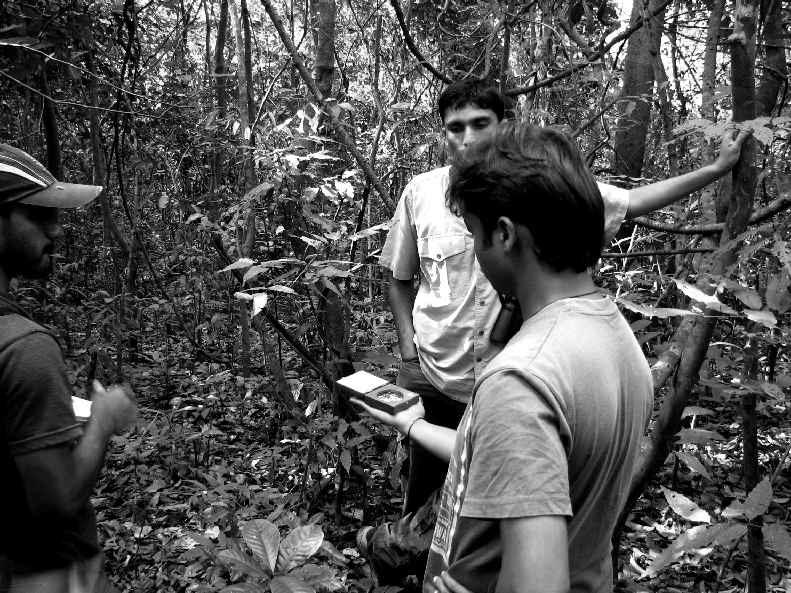Anand Mandyam Osuri
Other projects
22 Mar 2012
Understanding the Drivers of Losses in Carbon Storage Ecosystem Services Provided by Tropical Forest Fragments in India’s Western Ghats
14 Feb 2017
Assessing Recovery of Large Rainforest Trees and Carbon Storage in Ecologically Restored Degraded Rainforest Fragments
12 Sep 2023
Partnering with Private Landowners to Expand Native Tree Nurseries and Restore Tropical Rainforests in India’s Western Ghats Biodiversity Hotspot
The project aims to assess short- and long-term impacts of habitat fragmentation and selective-logging on forest tree communities and biomass stocks. In addition to addressing questions that are of academically, the project will generate data and insights that are relevant for regional conservation planning.

Vegetation plot.
Theory suggests that the altered physical structure and composition of forest tree communities affected by fragmentation and logging would reduce their overall functional capacity to store carbon – at present due to the death and removal of trees and in the future through compositional shifts from hardwood- to softwood-dominated communities.Although these theoretical predictions have serious consequences, given the widespread occurrence of fragmentation and selective-logging, they have never been explicitly tested. We propose to test these predictions in a high-biodiversity region in India's Western Ghats mountains. The field component of the project will largely involve field sampling of tree communities using vegetation plots, characterization of plant functional traits, and the compilation and creation of forest cover maps. Subsequent data analysis will focus on comparing the magnitude, stability and resilience of carbon stocks across undisturbed, fragmented and logged forests.
From an academic viewpoint, the project will take forward current scientific understanding of functional changes in forest vegetation communities following human disturbance, and the resulting changes in carbon stocks. It will be one of the first studies to look at the combined impacts of fragmentation and selective logging on various aspects of carbon storage ecosystem services, in the present day and projected into the future. It will extend this understanding to a geographic region which is still poorly studied in these respects, despite being heavily impacted by people and in urgent need of conservation action. Several recommendations are likely to emerge from this work, relating to the management of disturbed forests for the conservation of trees and carbon stocks, with many pertaining to conservation interventions such as restoration and controls on biomass extraction. These interventions will be pursued in collaboration with local forest departments and conservation organizations through close engagement with stakeholders with emphasis given to economic incentives (payment for ecosystem services, carbon credits) for conservation.